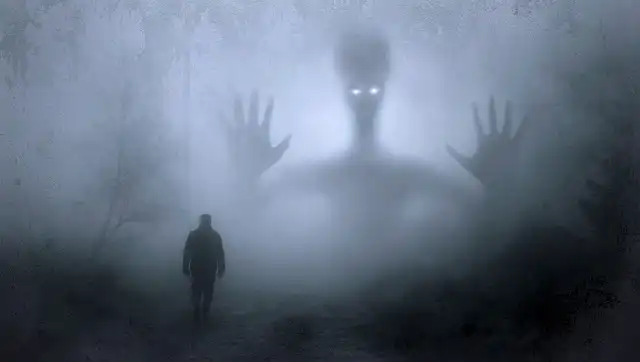Eden Lake: Breakdown of Violence, Morality and Social Order

Eden Lake explores the breakdown of social order and morality in the face of violence. A couple confronts ruthless teens, revealing themes of class, compassion, and the chilling consequences of unchecked ruthlessness.
For Brett, the video footage is a control system. That Brett removes the clips by the end isn’t simply regarding covering tracks– it’s regarding pirating the story. Listening no longer matters when denial is just a removed documents away.
Romantic Bubble and Impending Doom
The film’s unsentimental look towards Steve and Jenny’s or else cozy romantic bubble also matters. In the early moments, the impending risk makes us nervous for their connection’s survival. But once that impression falls down, and survival itself becomes the only priority, the act of Jenny placing on an involvement ring before dashing into the wild reviews like a bitter, unfunny joke.
Jenny, desperate, runs onto the road and stops a vehicle driver, only to understand he is Cooper’s older bro. Jenny awakens inside a house, comforted by a woman and Jon. With nowhere to conceal, Jenny locks herself in the bathroom until Jon kicks the door down.
At dawn, Jenny sees Steve connected to a rock with barbed wire. Brett orders each member of the gang to stab him so that none can run away blame. Paige, the only woman in the team, documents the torture on her phone. Jenny distracts the gang enough for Steve to damage free, however she can not tend to his mortal wounds. Before sending her away to discover aid, Steve gives her the involvement ring he had actually intended to suggest with, which she slips on before running.
Gang’s Ruthlessness and Jenny’s Struggle
Jenny comes across Adam, a young boy she and Steve had earlier satisfied gathering caterpillars. However Adam betrays her, alerting the gang. They catch her and link her, together with Steve’s corpse, to a pile of wood. Brett pressures Adam to establish them alight while Paige films. Jenny manages to get away, infuriating Brett, who punishes Adam forcibly a burning tire around his neck, killing him. Later, Jenny unintentionally kills Cooper, a reluctant more youthful gang participant who had tried to help her. Locating Cooper’s body, Brett completely defeats another participant of the gang to death. Frightened, Paige flees.
Watkins’s Directorial Debut
In his provocatively interesting and scary directorial debut, Watkins does come to grips with innovative limitations and fault lines: a particular enthusiasm to study the visceral information sometimes, and a resistance to broaden even more, as though fearing his very own story might fall down under its weight. Yet the means his chilling, truly haunting storytelling prospers within these self-imposed borders talks quantities concerning the passion.
At a regional restaurant, Steve defines the team to a waitress, who defensively urges her children would never ever harass anyone. Later on, Steve slips into a house he thinks belongs to the gang however directly leaves when Jon, a surly homeowner, returns.
Jon’s rejection to inform the authorities or help Jenny isn’t just anti-urban– it’s rooted in deep institutional wonder about. The city outsider is never one of them, and never ever will certainly be.
Regardless of her appeals, Brett exists, declaring Jenny and Steve killed his buddies and his dog. Thinking him, Jon and 2 various other males beat her viciously. Upstairs, Brett deletes Paige’s recordings of the gang’s crimes, blocks out the sounds of Jenny’s screams, and stares blankly right into a mirror while wearing Steve’s sunglasses– happy, remorseless, and utterly resolute.
Probably the sharpest thematic spine in James Watkins’ screenplay is its thin yet attacking commentary on course. It runs under the surface like a peaceful pulse: Steve, a middle-class outsider, endeavors right into a stealthily serene pocket of rural England, just to crash into working-class bitterness. His sense of ethical prevalence obliges him to ‘technique’ the regional youngsters for their misbehavior. Yet the kids, shaped by generational disregard and performative freedom, descend right into something uncomfortably fierce.
Moral Compass and Social Commentary
It would also be convenient to simply despise the group of streetwise teenagers that hunt the pair down, their ruthlessness so sharp that saving them feels like a hazard by itself. And the movie doesn’t pretend otherwise. Yet they are also alternates for a generation delegated rot in the hands of poisonous, abusive, and apathetic parenting. What’s lacking isn’t simply technique– it’s an ethical compass shaped by area care and psychological uniformity. That this moral vacuum cleaner appears into uncontrolled ruthlessness really feels horrifyingly unpreventable.
Jenny Greengrass and her companion, Steve Taylor, set off for a weekend break at Eden Lake, a remote quarry in the English countryside. Throughout the drive, Steve vents regarding increasing antisocial behaviour amongst young people and slams the state of modern parenting.
The opening stretch of “Eden Lake” begins with Jenny delicately remarking exactly how her close friend is off on an international holiday with her partner, while Steve is taking her to a quarry near his worksite. What adheres to may quickly be misinterpreted as a city-versus-village tale– accommodating versus feral– yet the range of violence overthrows this completely. Instead, the film uses a chilling meditation on just how swiftly social order breaks down in the absence of compassion and responsibility. This is guy minimized to his most animal reactions, and the scary cuts so deep as a result of just how recognizably human it is. That break down of respect is marked most viscerally when Jenny, in sheer anxiety, climbs up right into a rancid dustbin simply to survive.
Currently, this dip into personal sappiness may seem unassociated, yet it mirrors the dark cesspool beneath James Watkins’s bleak and unsettling survival scary “Eden Lake.” An unnerving, full-scale exploitative dramatization in the vein of genre films critiquing the hoodie culture of “Broken Britain,” it lets loose a graphic searching spree without ever before stopping briefly to approve its audience very easy satisfaction. Underneath that bloodied surface area, nonetheless, it narrates about the actual kind of narrative control possessed by individuals to acquire power and favour– and the grim, scarring effects of it.
Secured by great efficiencies from Kelly Reilly and Michael Fassbender, the movie motions toward the bigger dilemma of English teenage years. With the evolution of postmodern horror in recent times, and the wider discussion around Britain’s upsetting, frequently unattended young people– most potently reignited by the Stephen Graham series “Teenage years”–“Eden Lake” becomes a movie well worth reviewing. Here is my attempt to break it down for you.
The movie stands as an early motion picture portrait of surveillance bleeding into average life. Paige’s shivering however unwavering grip on her mobile cam is haunting– not because she’s recording evil, but since she never ever thinks about going down the device to quit it. Virtually twenty years later, this impulse– to movie as opposed to step in– has just calcified right into a social pathology.
Surveillance and Modern Pathology
The opening stretch of “Eden Lake” begins with Jenny casually remarking how her good friend is off on a foreign vacation with her companion, while Steve is taking her to a quarry near his worksite. The movie’s unsentimental gaze towards Steve and Jenny’s otherwise cozy enchanting bubble additionally matters.
Jenny sidetracks the gang sufficient for Steve to break totally free, however she can not tend to his mortal wounds. In spite of her pleas, Brett lies, claiming Jenny and Steve killed his close friends and his canine. Upstairs, Brett removes Paige’s recordings of the gang’s criminal offenses, obstructs out the sounds of Jenny’s screams, and stares blankly right into a mirror while wearing Steve’s sunglasses– happy, remorseless, and utterly unshaken.
Back at the lake, they find their Jeep and belongings missing out on. Forced to head back to community on foot, they narrowly stay clear of being struck by Brett, that is now driving their swiped Jeep. When they confront the gang in the woods after dark, Steve threatens them, however the teens draw knives. In the scuffle, Brett’s dog is stabbed, sending him into a fierce rage.
I had a cousin with whom I shared a specifically solid bond in 2022, when we were both eagerly anticipating the lives that awaited us at college graduation. However quickly, it all spiraled into a cesspool of verbal clashes, emotional range, and cold shoulders. What pressed me into months– and eventually years– of mental anxiety was the means he hid everything behind a self-image of being the liable, fully grown one: the person that paid attention to seniors and combined in so nicely and agreeably. It’s the sort of injury you don’t recover from quickly.
1 class bitterness2 Eden Lake
3 moral vacuum
4 social order
5 survival horror
6 teenage violence
« Together: Marriage, Horror, and Relationship StrifeBetter Go Mad In The Wild: Twins’ Seclusion and Joy »
